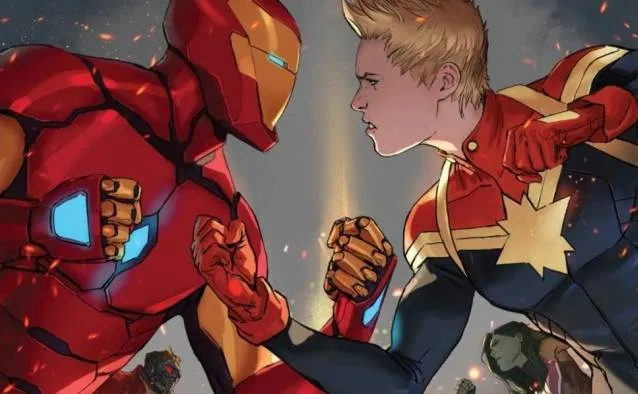
Diversity as the New Center of the Comics Universe
Ulysses is the Inhuman at the center of the conflict in Civil War II by Brian Michael Bendis, David Marquez, Justin Ponsor, Clayton Cowles, & Victor Ochoa. He’s also another assumedly cisgender, heterosexual White man in comics. It seems as though these types of decisions are made more often than they should be, especially considering that at the very least, you have increased visibility of underrepresented people when you make them new characters. Thus, I wonder: why aren’t we including more diverse characters when opportunities like Ulysses arise?
When creating any character, I think we all have defaults. Mine tend to be, shockingly, Black gay men, and part of this is because I want to create stories I can see myself in. While this is not inherently bad, we should also consider what it means to write someone outside of ourselves. Granted, it’s difficult to get any character completely right, and we are all allowed to have differing perspectives in the same group, but that should not stop us from trying and at least consulting with those who live in the identities we flesh out. So, when we have a chance to get a new character in mainstream comics, they don’t have to be White, cisgender, heterosexual, and able-bodied. Yet, that’s not what we tend to see.
Comics is currently dominated by White cishet men, both on the page and behind the pen. I can see why they default to themselves: the characters they create reflect the identities they hold. These creators also exist in a world in which they’re already represented and haven’t had the challenge of not seeing themselves in comics, giving less impetus to buck the system. However, this process of creation also seems to go by unchallenged until readers point out, “Hey, it’s another White dude.” Creators have many opportunities to step outside themselves and challenge the boundaries of representation, but many appear reticent for various reasons.
Some are afraid of reprisal, which is understandable, but a hollow excuse to maintain the status quo. Others may feel they are exacerbating “diversity for diversity’s sake,” another common justification at not increasing characters of color, queer characters, and other identities. Some may simply be indifferent, able to stay in a place of complacency without feeling as though they don’t exist. At the end of the day, however, these reasons do not help to assuage the pain of invisibility and oppression that many diverse and marginalized readers feel.
Many have said that equity to the privileged feels like a threat. When you are no longer at the center of the universe, it’s easy for that shift in spotlight to engender feelings of defensiveness. The resistance to change we see in comics today could come from such a perspective. When you don’t have to constantly recognize that you aren’t represented, your survival doesn’t hinge on increasing representation. Thus, it takes effort to create a character who does not look like you or your industry, who does not share your feelings. However, this is where comics have a golden opportunity to do something different, if only more creators would look at the world and the voices around them and dare to reflect it.
My challenge to creators is to be bold and write someone new, but also advocate for the introduction of diverse creators. There is an intimacy between characters and creators who share identities that cannot be easily replicated if there is a mismatch. As it stands, though, change comes not just from revolution in the ranks, but also the mind, and White cishet, and/or male creators could stand to step outside their perspectives and write diverse characters who are whole, real, and human.
There’s an implicit statement in a character like Ulysses, embroiled in a conflict between heroes, that he as a White assumedly cishet man is the focal point of a major series. How powerful would it be if he were anyone else, a person of color, a queer person, who had such influence and impact, who the Marvel A-listers intentionally sought out and the Inhumans protected? With fiction, the sky is truly the limit, so how about we start reaching beyond the ceiling.








